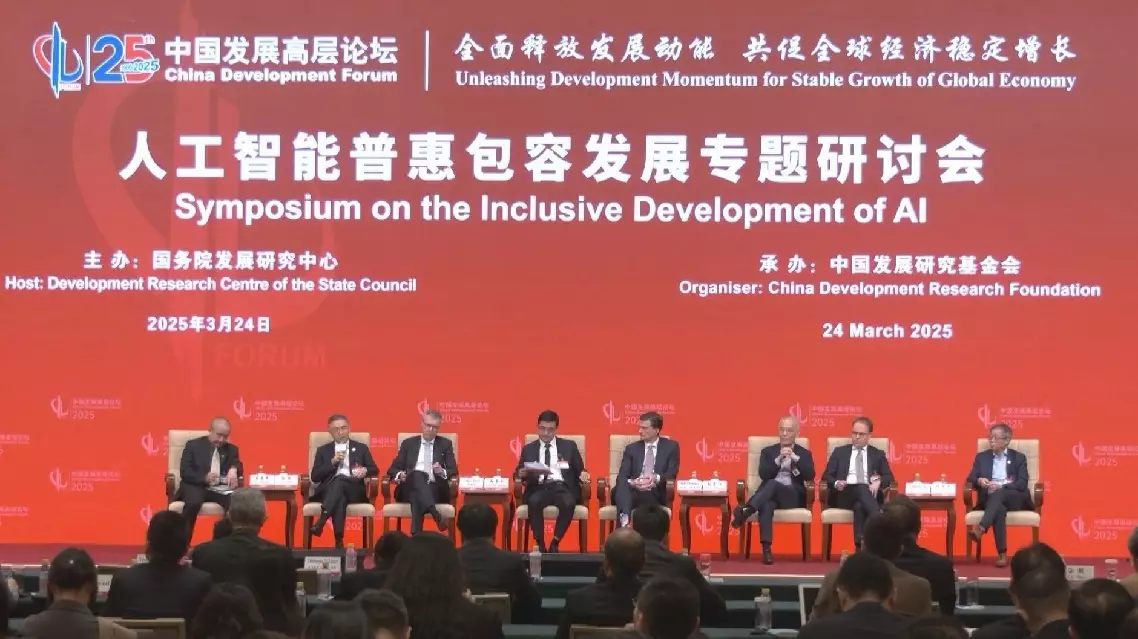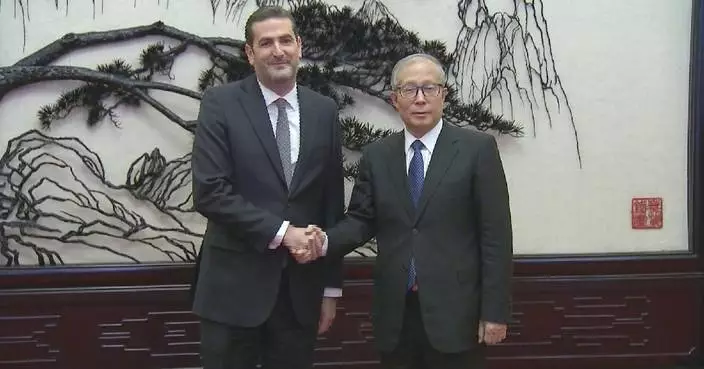China's vast market and advancements in efficient artificial intelligence (AI) models like DeepSeek are poised to empower various industries from factories to finance, said international guests at the just concluded China Development Forum 2025.
At the beginning of this year, Chinese startups like DeepSeek garnered global attention for their groundbreaking technology and commercial potential, fueling another wave of AI fervor.
During a symposium on the inclusive development of AI held on Monday, attendees discussed the application of this emerging technology. Speakers highlighted China's massive market and diverse application scenarios as providing fertile ground for the AI industry, driving intelligent upgrades in fields like government affairs, telecommunications, automotive, finance, and energy.
On the sidelines, global attendees stressed that they actively increasing cooperation with China in this area.
"We're very excited about it (the development and potential of China's AI industry), one of the things that's happening with AI right now, and I think you all saw it with DeepSeek and other models. AI models are becoming smaller, more capable. We went from mobile to also expanding to automotive, to PCs, to industrial, to spatial computing. Our partnerships in China are also expanding," said Cristiano Amon, president and CEO of Qualcomm.
"The development of models like DeepSeek, which are much more efficient than other models, helps us to bring AI at every level. At the level of a shop floor of a plant in manufacturing, at the level of the control system of a full building or full plant. At the level of your whole company with a digital twin on which from design to build to operation, you can bring benefits with artificial intelligence," said Jean-Pascal Tricoire, chairman and CEO of Schneider Electric.
Attendees also noted that AI still faces a series of pressing issues and called for strengthened international cooperation and mutual trust to jointly advance governance.
"The development of AI technology is very fast. So many problems are only discovered during the application process, and only after discovery can we find solutions. Autonomous driving involves many factors that need to be considered, such as safety issues, liability concerns, and so on, which need to be addressed urgently. So I think this may require the interaction between the application process and the formulation of governance rules. We would continuously discover problems in this process and we will solve them after," said Xue Lan, dean of Schwarzman College at Tsinghua University.
Meanwhile, AI technology has been fueling rapid progress in robotics across China, with humanoid and quadrupedal robots made in the country capturing global attention. However, producers emphasized that there is a long road ahead for their development.
"The progress of the entire robotics industry in the past few years is due to the advancement of [AI] algorithms, which has brought about improvements in the functions and performance of the entire industry. There will be some improvements this year, both in terms of technology and some functions of the products, but it still takes time," said Wang Xingxing, founder and CEO of Unitree Robotics.
This year's two-day China Development Forum kicked off at the Diaoyutai State Guesthouse in Beijing on Sunday, attracting over 100 foreign guests to delve into topics that include macroeconomic policy, reforms and boosting consumption.
Themed "Unleashing Development Momentum for Stable Growth of Global Economy", the forum featured 12 symposiums and several closed-door sessions. Participants explored key issues including the development of new quality productive forces, AI innovations, green development, and new trends in economic globalization.

China's progress in AI to empower various industries: executives









